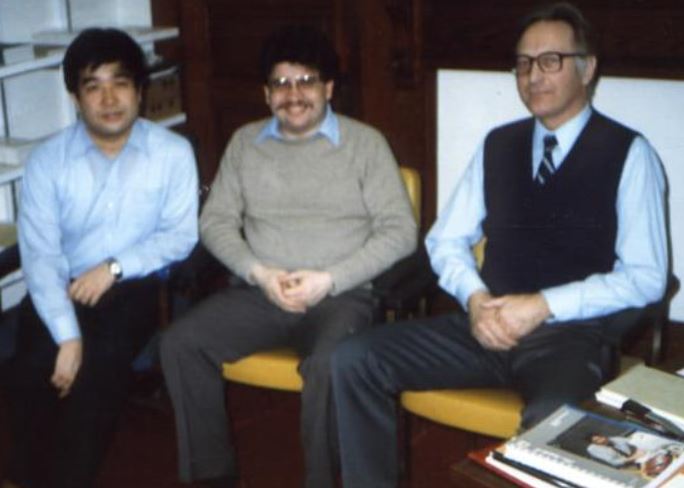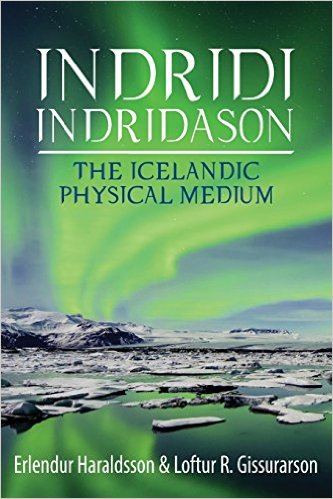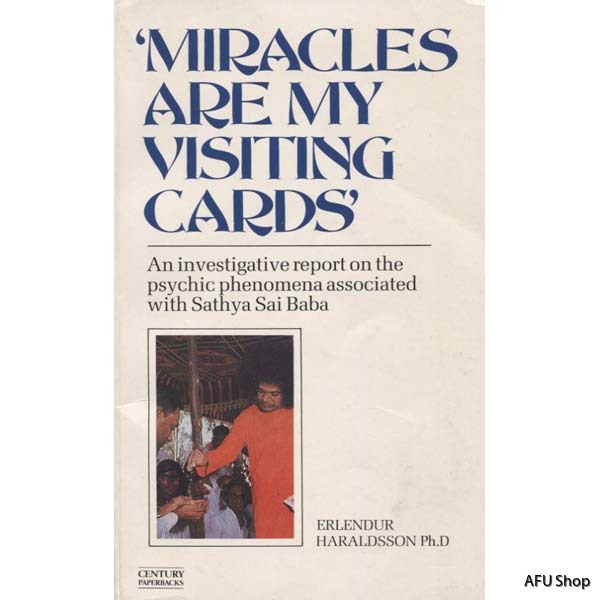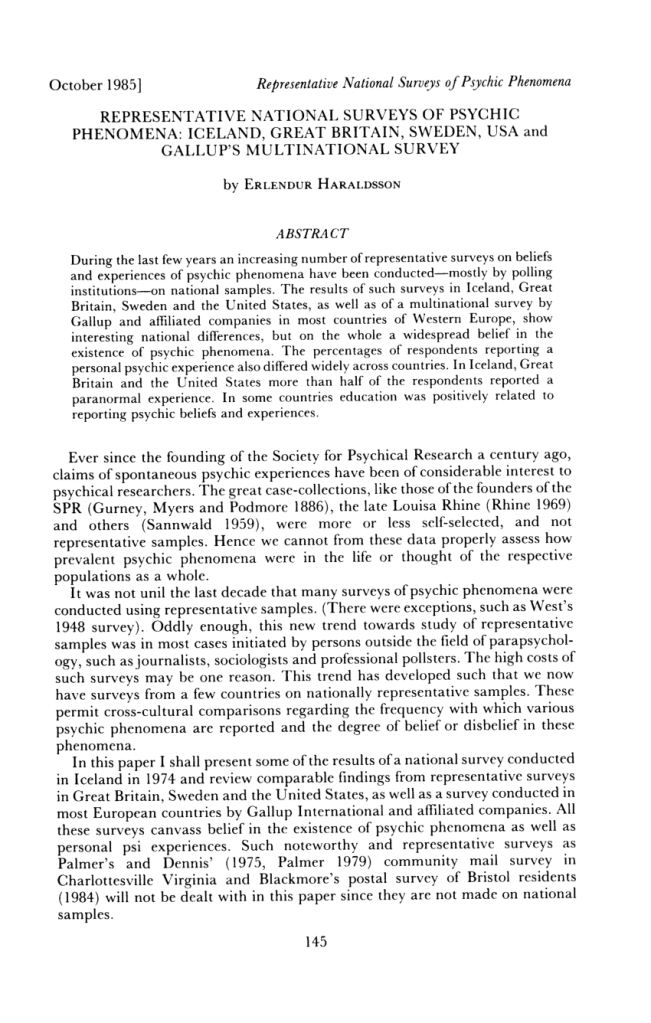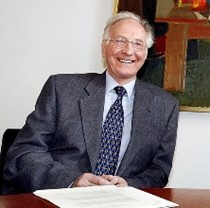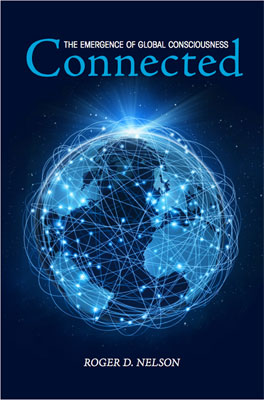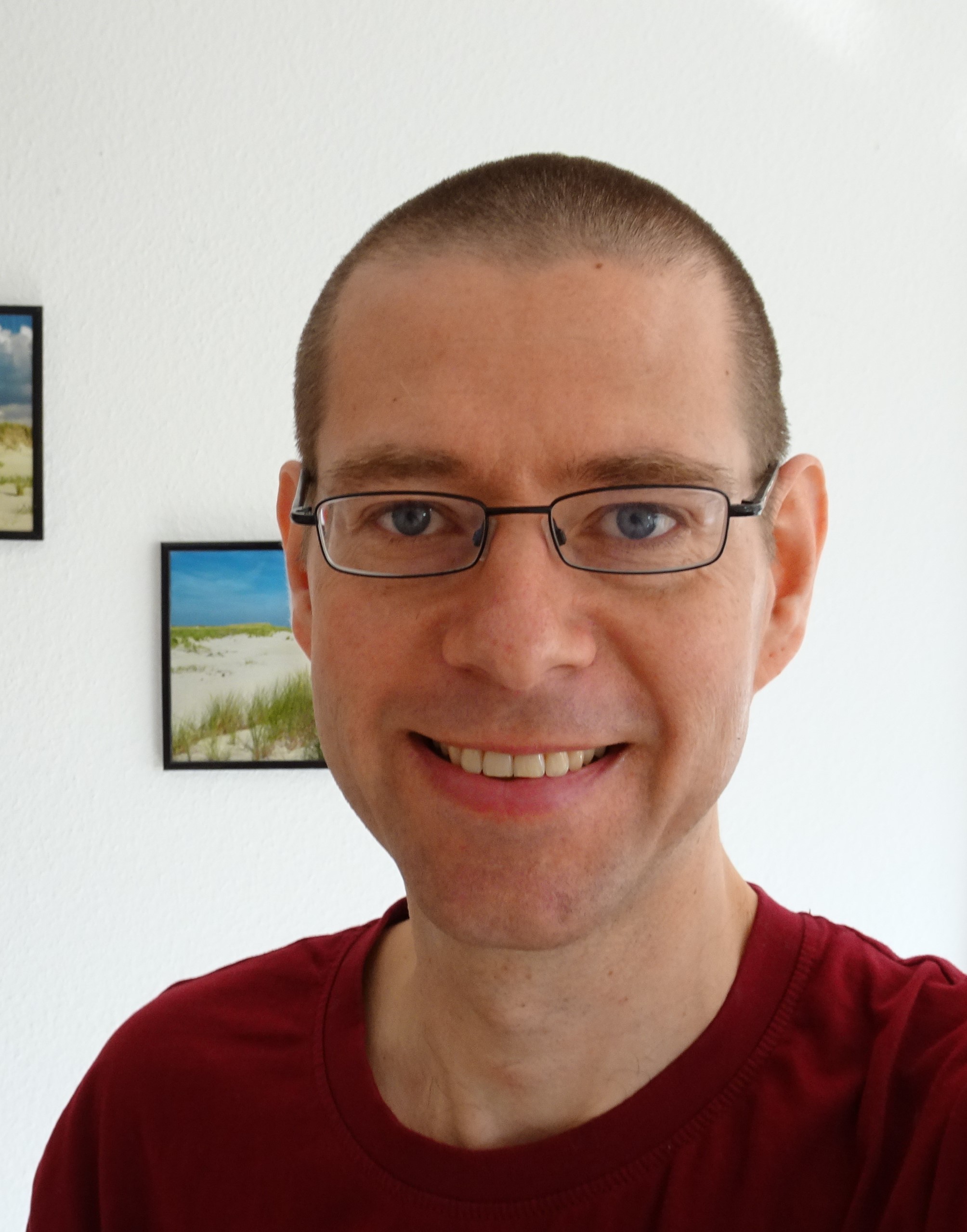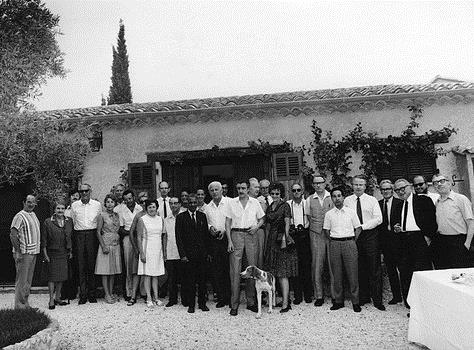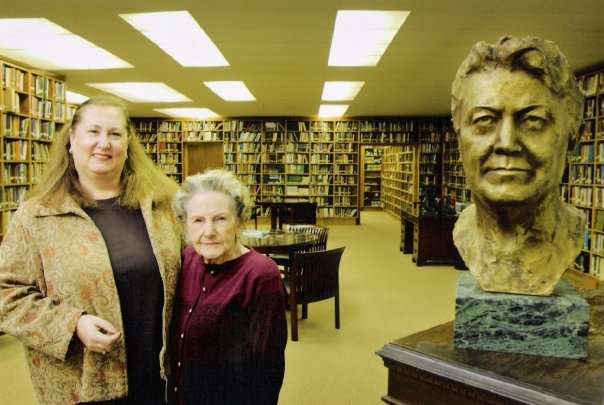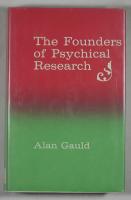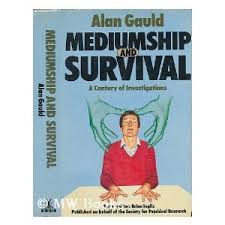Carlos S. Alvarado, PhD, Research Fellow, Parapsychology Foundation
I first met Alexander Moreira-Almeida, M.D., PhD, in Charlottesville, Virginia, when he came to attend a conference about mediumship sponsored by the Parapsychology Foundation. Alexander is a psychiatrist from Brazil that works at the University of Juiz de Fora. I visited him in Brazil with my wife an colleague Nancy L. Zingrone, and met several of his graduate students, many of whom were working on projects related to mediumship and other topics.

Dr. Alexander Moreira-Almeida
Alexander currently holds various positions, among them: Associate Professor of Psychiatry, Federal University of Juiz de Fora [UFJF], School of Medicine, Director of the Research Center in Spirituality and Health (NUPES) at UFJF, Chair of the World Psychiatric Association Section on Religion, Spirituality and Psychiatry, and Chair of the Section on Spirituality of the Brazilian Psychiatric Association.
Alexander’s dissertation was about the relationship between mental mediumship and psychopathology. Over the years he has published on the subject and his general results do not support the idea that mediums suffer from mental problems.
Interview
How did you get interested in parapsychology?
I grew up in a family, like many others in Brazil, with strong and mixed religious/spiritual interests. I was exposed mainly to Catholicism, Umbanda (an African-Brazilian religion), Spiritism, and to a variety of esoteric/spiritualist movements. At the same time, since an early age, I had a strong interest in natural sciences and philosophy. I was also influenced by Spiritism and its proposal of using a rational and scientific approach to spiritual issues, of reconciling religion and science.
So I became interested in exploring and understanding anomalous experiences from a rational/scientific perspective. In 1995 I was a medical student at the Federal University of Juiz de Fora (UFJF), Brazil. In the same week, two articles were published in national press media covering psychic surgery. It was the first time I heard about John of God. What intrigued me the most was the fact that the two articles had totally opposing views of psychic surgery. One presented it as quackery and the other as a real and effective treatment. At that time it became clear to me that both articles had preconceptions about the subject, since none presented clear evidence to support their claims. Then, I asked myself why someone did not simply start by checking if the “surgeries” were real or fake. So, with another colleague, and under supervision of a Pathology Professor of my medical school, we developed a study on the spiritual healing and surgeries performed by John of God, my first study on issues related to spirituality or parapsychology (click here).
During my residence in psychiatry at the Institute of Psychiatry of the University of São Paulo, Brazil, I started more in depth studies of spiritual experiences. I was especially interested in studies on the origins, the sources, of spiritual experiences and how to differentiate them from mental disorders. With another resident and two psychiatry professors, we founded the NEPER (Center for the Study of Religious and Spiritual Problems) of the Institute of Psychiatry – USP, a multidisciplinary research group in religion/spirituality and health that includes psychiatrists, neurologists, pharmacist, psychologists, a historian, an anthropologist and a philosopher. This was first research group in spirituality and health in a medical school in Brazil. During that time I got to know the studies on anomalous/spiritual experiences performed by Ian Stevenson, Bruce Greyson, Stanley Krippner and Etzel Cardeña. At the same institution, I obtained a PhD in Health Sciences (2004) with the doctoral dissertation: “Phenomenology of Mediumistic Experiences, Profile and Psychopathology of Spiritist Mediums.”
After my PhD, I was a posdoctoral fellow (2005-6) at Duke University (USA) under supervision of Prof. Harold Koenig. During that time, in addition to perform studies in epidemiology of religion, I also became familiar with the Parapsychological Association, the Parapsychology Foundation and the Rhine Research Center, what allowed to met many good researchers in parapsychology that were very supportive of my work.
What are your main interests in the field and how have you contributed to its development?
My main research interests involve the exploration of the association between religiosity and health, empirical studies of spiritual experiences as well as the methodology, history and epistemology of this research. My main focus now is on spiritual experiences, especially on their differentiation from mental disorders and their implications to mind-brain relationship.
We have performed several epidemiological studies with clinical (bipolar, dialysis patients, rehabilitation) and general population (elderly, college students, pregnant women on the impact of religion and spirituality (R/S) on health outcomes (depression, anxiety, quality of life, pain, substance use/abuse etc). In order to foster new studies about R/S in Brazil, we have translated and validated, or developed in Portuguese three different scales (click here, here, and here).
Interdisciplinary studies of spiritual experiences are essential to advance the scientific understanding of them. Most of my studies on spiritual experiences have been focused on mediumship. I started with my PhD investigating the phenomenology and the mental health of 115 spiritist mediums in São Paulo, Brazil. Our findings have shown that mediums, despite having many anomalous experiences that have been called “psychotic” and/or “dissociative,” have good mental health. Actually, there were correlations of the frequency of full trance and hearing spirits with better social adjustment and lower psychiatric symptoms. I have been involved with studies and discussions in the international psychiatric community (through conferences and papers) about the distinction between spiritual experiences and mental disorders (click here; see video).
I have become more focused on the investigation of the sources of spiritual experiences and their implications for mind-brain relationship, especially regarding the evidence if mind is or not reducible to brain activity (click here). In collaboration with Andrew Newberg MD and Julio Peres, PhD, we have been involved in neurofunctional imaging studies of mediumistic experiences. We performed a study at the University of Pennsylvania, USA that was published in PlosONE in 2012, and two at Aachen University, Germany (with Julio Peres, PhD, Ute Habel, PhD and Alessandra Mainieri, PhD). We have just ended a study on the evidence of survival provided by the Brazilian medium Chico Xavier.
We have promoted international conferences in Brazil and symposia in international congresses such as (American Psychiatric Association, American Psychological Association and World Psychiatric Association) to discuss mind-brain relationship and also the clinical, research and theoretical implications of studies with anomalous experiences.
Why do you think that parapsychology is important?
It is important because it fosters research in several sorts of human experiences that are often neglected in other fields of science. If we wish to have a comprehensive picture of the universe and of the human nature we cannot afford neglecting and ignoring any aspect of human experience.
In your view, what are the main problems in parapsychology today as a scientific field?
I believe that naïve acceptance of materialist scientism and myths about the history and epistemology of the relationship between science and religion/spirituality are two major blocks. The materialist perspective of human being and the universe is a worldview, a metaphysical assumption and not a scientific fact. It is important to show that most founding fathers of modern science and psychology were not adept of materialism. Currently I am involved in historical studies on the studies of mediumship performed by William James.
I discussed some of these problems in the paper “Reflections on the Future of Scientific Investigations of Psi Phenomena”, published at the Special Issue Celebrating the 75th Anniversary of the Journal of Parapsychology (2012, 76, 33-35, supplement). I will answer with some ideas I developed there. Parapsychology has also suffered from past sterile controversies inside the field of parapsychology (e.g. between laboratory and natural observations, and between ESP and survival research), and between this field and mainstream science.
Parapsychology often assumed positivist and naïve inductivist views of science. This illusory ideal included overvaluation of measurements and laboratory experiments, even in intrinsically qualitative issues, as well as the quest for the unreachable scientific goal of finding the perfect evidence or developing a crucial experiment. This epistemological stance also favored an “anti-theoretical” approach, in the belief that mere collection of more and more refined experimental data would lead to complete scientific knowledge. This is a major factor which has been impairing theoretical development. In contrast, I believe that research should be conducted within the framework of what philosophers of science have called “scientific research programms” or “paradigms.”
Finally, another current development that may have impact in the future of the field is the recent economic and scientific flourishing in many countries not belonging to the axis Europe-North America. This widening of the range of participants in the scientific game is expected to enhance international collaboration, to foster creativity, and to generate new insights, hypothesis and research strategies. Diversity and creativity, allied with intellectual rigor and impartiality, are, I believe, essential ingredients in the scientific exploration of psi phenomena.
Can you mention some of your current projects?
Our research group (NUPES – Research Center in Spirituality and Health, School of Medicine, Federal University of Juiz de Fora – UFJF, Brazil) is currently composed by researchers from several areas (Psychiatry, Geriatrics, Nursing, Physical Therapy, Philosophy, History, Psychology, and Statistics). We are currently involved in several exciting projects. There is multidisciplinary research (neuroimaging, psychiatry, neuropsychology) comparing hallucinatory experiences between mediums and patients with schizophrenia. Another study, using a controlled and blind protocol, investigates the obtention of anomalous information by mediums. Another project is the “Mind-brain debate in contemporary psychiatry” (click here , funded by Oxford University and Templeton Foundation. This project engages a wide range of disciplines (psychiatry, psychology, philosophy, neuroscience, and history of science) in order to: 1) increase interest and awareness by general and academic audiences on the state of art of academic discussions on MBP; 2) stimulate new and well informed studies; 3) encourage networking and the establishment of new research groups of MBP. As part of the project we promoted the “1st Mind-Brain International Symposium” in São Paulo, Brazil. We had more than 500 attendees and speakers from several disciplines. In March/2017 we will promote the 2nd Mind-Brain Symposium. Several videos on the subject have been produced and at available at TV NUPES, a bilingual – English-Portuguese – YouTube Channel. The project also involves research, a Facebook Page, and an award for an essay competition “The mind-brain debate and its controversies”.
Currently I am also chairing the Sections on Religion, Spirituality and Psychiatry of the World Psychiatric Association (WPA) and of the Brazilian Psychiatric Association. In order to promote research and education on the interface between spirituality and psychiatry, the WPA released recently a Position Statement.
Selected Publications
EDITED BOOK:
2012 Moreira-Almeida, Alexander, Santos, Franklin S. (Eds.) Exploring Frontiers of the Mind-Brain Relationship. New York, EUA: Springer.
PAPERS IN REFEREED JOURNALS:
2015 Moreira-Almeida, Alexander, Araujo, S. F. Does brain produce mind? A survey of psychiatrists’ opinions. Archives of Clinical Psychiatry v.42, p.74 – 75.
2015 Silva, Cristiane Schumann; Lucchetti, Giancarlo; Moreira-Almeida, Alexander. Validation of the Portuguese version of the Brief Multidimensional Measure of Religiousness/Spirituality (BMMRS-P) in clinical and non-clinical samples. Journal of Religion and Health, v.54, p.435-48.
2014 Sleuitjes, A., Moreira-Almeida, Alexander, Greyson, B. Almost 40 years investigating near-death experiences: an overview of mainstream scientific journals. Journal of Nervous and Mental Disease v.202, p.833 – 836.
2014 Moreira-Almeida, Alexander, Koenig, Harold G., Lucchetti, Giancarlo Clinical implications of spirituality to mental health: review of evidence and practical guidelines. Revista Brasileira de Psiquiatria v.36, p.176 – 182.
2014 Beauregard, Mario, Schwartz, Gary E., Miller, Lisa, Dossey, Larry, Moreira-Almeida, Alexander, Schlitz, Marilyn, Sheldrake, Rupert, Tart, Charles. Manifesto for a Post-Materialist Science. Explore v.10, p.272 – 274.
2014 Alminhana, L, Moreira-Almeida, Alexander. Anomalous experiences and schizotypy: a necessary distinction between pathological and non-pathological psychotic experiences. Psyche & Geloof. , v.25, p.217 – 134.
2014 Rocha, A. C., Parana, D., Freire, E. S., Lotufo Neto, Francisco, Moreira-Almeida,
Alexander. Investigating the accuracy of alleged mediumistic writing: a case study of Chico Xavier’s letters. Explore. v.10, p.300-8.
2013 Stroppa, André; Moreira-Almeida, Alexander . Religiosity, mood symptoms, and quality of life in bipolar disorder. Bipolar Disorders, v. 15, p.385-93.
2013 Moreira-Almeida, Alexander. Religion and health: the more we know the more we need to know. World Psychiatry. v.12, 37-38.
2013 Gomes, F. C. ; Andrade, A. G. ; Izbicki, R. ; Moreira-Almeida, Alexander ; Oliveira, L. G. . Religion as a Protective Factor against Drug Use among Brazilian University Students: A National Survey. Revista Brasileira de Psiquiatria v. 35,29-37.
2013 Tostes, J.S.R.M.; Pinto, A.R.; Moreira-Almeida, Alexander. Religiosity/spirituality in clinical practice: what does the psychiatrist need to do? Revista Debates em Psiquiatria, v. 3, p. 20-26.
2013 Moreira-Almeida, Alexander. Explorando a relação mente-cérebro: reflexões e diretrizes. Revista de Psiquiatria Clínica, v. 40, p. 105-109.
2013 Moreira-Almeida, Alexander. Scientific research on mediumship and mind-brain relationship: reviewing the evidence. Revista de Psiquiatria Clínica, v. 40, p. 233-240.
2013 Moreira-Almeida, Alexander. Implications of spiritual experiences to the understanding of mind-brain relationship. Asian Journal of Psychiatry, v. 6, p. 585-589.
2013 Alminhana, L, Menezes JR, A., Moreira-Almeida, Alexander. Personalidade, religiosidade e qualidade de vida em indivíduos que apresentam experiências anômalas em grupos religiosos. Jornal Brasileiro de Psiquiatria.v.62, p.268-274.
2013 Sech Junior, A., Araújo, S. F., Moreira-Almeida, Alexander. William James and Psychical Research: Toward a radical science of mind. History of Psychiatry. v.24, 62-78.
2012 Peres JFP, Moreira-Almeida, Alexander, Caixeta, L., Leao, F. C., Newberg, A. Neuroimaging during Trance State: A Contribution to the Study of Dissociation. Plos One, v.7, e49360.
2012 Moreira-Almeida, Alexander. Assessing clinical implications of spiritual experiences. Asian Journal of Psychiatry. v.5, p. 344-346.
2012 Moreira-Almeida, Alexander. Implicações dos estudos brasileiros em psiquiatria e espiritualidade. Revista de Psiquiatria Clínica. v.39, 181.
2012 Lucchetti, G ; Granero, A. L. ; Peres MF ; Leao, F. C. ; Moreira-Almeida, Alexander ; Koenig, Harold G . Validation of the Duke Religion Index DUREL (Portuguese Version). Journal of Religion and Health, v. 51, p. 579-586.
2012 Taunay T.C. ; Cristino, E. D. ; Machado, M. O. ; Rola, F. H. ; Lima, J. W. O. ; Macedo, D. S. ; Gondim, F. A. A. ; Moreira-Almeida, Alexander ; Carvalho, A. F. Development and validation of the Intrinsic Religiousness Inventory (IRI). Revista Brasileira de Psiquiatria, v. 34, p. 76-81.
2012 Lucchetti, Giancarlo ; Aguiar, Paulo Rogério D. C. ; Braghetta, Camilla Casaletti ; Vallada, Candido P. ; Moreira-Almeida, Alexander ; Vallada, Homero . Spiritist Psychiatric Hospitals in Brazil: Integration of Conventional Psychiatric Treatment and Spiritual Complementary Therapy. Culture, Medicine and Psychiatry, v. 36,124-135.
2012 Taunay, Tauily Claussen D'Escragnolle, Gondim, Francisco de Assis Aquino, Macêdo, Daniele Silveira, Moreira-Almeida, Alexander, Gurgel, Luciana de Araújo, Andrade, Loraine Maria Silva, Carvalho, André Ferrer. Validação da versão brasileira da escala de religiosidade de Duke (DUREL). Revista de Psiquiatria Clínica, v.39, 130-135.
2012 Lucchetti, Giancarlo ; Lucchetti, Alessandra L. G. ; Peres, Mario F. P. ; Moreira-Almeida, Alexander ; Koenig, Harold G. . Religiousness, Health, and Depression in Older Adults from a Brazilian Military Setting. ISRN Psychiatry, v. 2012, p. 1-7.
2011 Moreira-Almeida, Alexander ; Cardeña, Etzel . Differential diagnosis between nonpathological psychotic and spiritual experiences and mental disorders: A contribution from Latin American Studies to the ICD-11. Revista Brasileira de Psiquiatria, v. 33, p. S29-S34.
2011 Silva, Cristiane Schumann ; Stroppa A ; Moreira-Almeida, Alexander . The Contribution of Faith Based Health Organisations to Public Health. International Psychiatry, v. 8, p. 62-64.
2010 Moreira-Almeida, Alexander, Pinsky, Ilana, Zaleski, Marcos, Laranjeira, Ronaldo. Religious involvement and sociodemographic factors: a Brazilian national survey. Revista de Psiquiatria Clínica , v.37, 12-15.
2010 Menezes, A., Moreira-Almeida, Alexander. Mental Health of Mediums and Differential Diagnosis Between Mediumship and Mental Disorders. Journal of Scientific Exploration. , v.24, 595-608.
2010 Moreira-Almeida, A. O crescente impacto das publicações em espiritualidade e saúde e o papel da Revista de Psiquiatria Clínica. Revista de Psiquiatria Clínica v.37, 41-42.
2010 Menezes, Adair, Moreira-Almeida, Alexander. Religion, Spirituality, and Psychosis. Current Psychiatry Reports.v.12, 174-179.
2009 Moreira-Almeida, Alexander. Differentiating spiritual from psychotic experiences. British Journal of Psychiatry, v.195, 370-371.
2009 Almeida, Angélica Aparecida Silva de, Moreira-Almeida, Alexander. Inácio Ferreira: institutionalizing the integration of medicine and paranormal phenomena. Journal of the Society for Psychical Research. v.73, 223-230.
2009 Moreira-Almeida, Alexander. Mitos históricos sobre a relação entre ciência e religião. Revista de Psiquiatria Clínica, v.36, 252-253.
2009 Menezes, A., Moreira-Almeida, A. Differential diagnosis between spiritual experiences and mental disorders of religious content. Revista de Psiquiatria Clínica. v.36, 69-76.
2009 Moreira-Almeida, Alexander, Koss-Chioino J. Recognition and Treatment of Psychotic Symptoms: Spiritists compared to Mental Health Professionals in Puerto Rico and Brazil. Psychiatry, v.72, 268-283.
2008 Moreira-Almeida, Alexander, Neto, Francisco Lotufo, Cardeña, Etzel. Comparison of Brazilian Spiritist Mediumship and Dissociative Identity Disorder. Journal of Nervous and Mental Disease, v.196, 420-424.
2007 Moreira-Almeida, A, Lotufo Neto, Francisco, Greyson, B. Dissociative and Psychotic Experiences in Brazilian Spiritist Mediums. Psychotherapy and Psychosomatics, v.76, 57-58.
2007 Chibeni, S. S., Moreira-Almeida, A. Remarks on the scientific exploration of “anomalous” psychiatric phenomena. Revista de Psiquiatria Clínica, v.34, 8-16.
2007 Moreira-Almeida, A ; Lotufo Neto, Francisco ; Greyson, B. . Dissociative and Psychotic Experiences in Brazilian Spiritist Mediums. Psychotherapy and Psychosomatics, v. 76, p. 57-58.
2005 The Spiritist View of Mental Disorders. Transcultural Psychiatry 42(4): 570-91.
2005 History of Spiritist Madness in Brazil. History of Psychiatry 16(1):5-25.
2004 Mediumship Seem by Some Pioneers of mental Health. Revista de Psiquiatria Clínica v.31, no 3, p. 132-41.
2004 “Profile and Psychopathology of Spiritist Mediums”. Revista Brasileira de Psiquiatria, v26 (Supl II), p. 109.
2004 “Phenomenology and History of Spiritist mediums: a qualitative approach”. Revista Brasileira de Psiquiatria, v26 (Supl II), p. 108.
2003 Methodological guidelines to explore altered states of consciousness and anomalous experiences. Revista de Psiquiatria Clínica, v. 30 no 1, p. 21-8.
2000 Psychic Surgery: an investigation. Revista da Associação Médica Brasileira, v.43, No 3, p.194-200.
2000 Núcleo de Estudos de Problemas Espirituais e Religiosos. (Center for the Study of Religious and Spiritual Problems). Revista de Psiquiatria Clínica, v.27, no 2, p.113-5.
BOOK CHAPTERS:
2014 Moreira-Almeida, A, Menezes, A., Zangari, Wellington. Dissociative and conversive disorders In: Tratado de Neuropsiquiatria – Neurologia Cognitiva e do Comportamento e Neuropsicologia.1 ed.São Paulo : Atheneu, p. 681-694.
2013 Moreira-Almeida, Alexander ; Araújo, S. F. . ICD-10: World Health Organization Classification of Mental and Behavioral Disorders, 10th Revision. In: Kenneth D. Keith. (Org.). The Encyclopedia of Cross-Cultural Psychology. 1 ed. New York: Wiley-Blackwell, p. 673-677.
2013 Peres JFP, Moreira-Almeida, Alexander, Caixeta, L. Neuroscience of trance and mediumship In: The Survival Hypothesis. Jefferson, NC: McFarland & Company,254-274.
2012 Moreira-Almeida, Alexander. Research on mediumship and the Mind-brain relationship. In: Moreira-Almeida, Alexander, Santos, Franklin S. Exploring Frontiers of the Mind-Brain Relationship. New York, EUA: Springer. p.191-231.
2012 Moreira-Almeida, Alexander, Cardeña, Etzel. Diagnóstico diferencial entre las experiencias espirituales y psicóticas no-patológicas y los trastornos mentales: Una contribución al ICD-11 desde los Estudios Latinoamericanos In Ciencia y religión: horizontes de relación desde el contexto latinoamericano, edited by Jaime Laurence Bonilla. e ed 1, 261-290. Bogotá – Colombia: Universidad de San Buenaventura.
2011 Moreira-Almeida, Alexander ; Alberto, Klaus Chaves . Allan Kardec and the development of a research program in psychical experiences. In: Jader dos Reis Sampaio. (Org.). A Temática espirita na pesquisa contemporânea. São Paulo: Centro de Cultura, Documentação e Pesquisa do Espiritismo, v. , p. 132-158.
2011 Moreira-Almeida, Alexander . A brief overview of the philosophy and development of Spiritism’s methodologies. In: Emma Bragdon. (Org.). Spiritism and Mental Health: Practices from Spiritist Centers and Spiritist Psychiatric Hospitals in Brazil. 1 ed. London: Singing Dragon an imprint of Jessica Kingsley Publishers, v. 1, p. 29-36.
2011 Moreira-Almeida, Alexander . The spiritist view of mental disorders. In: Emma Bragdon. (Org.). Spiritism and Mental Health: Practices from Spiritist Centers and Spiritist Psychiatric Hospitals in Brazil. 1 ed. London: Singing Dragon an imprint of Jessica Kingsley Publishers, v. 1, p. 37-46.
2010 Moreira-Almeida, Alexander, Stroppa A. Importance and impact of spirituality in mental health: the challenge of recognize and integrate spirituality at patients’s care. In A Arte de Cuidar – Saúde, Espiritualidade e Educação, edited by Franklin Santana Santos, 197-213. Bragança Paulista – SP: Comenius.
2010 Mendonça Netto, S., Moreira-Almeida, A. Methodology for research in spirituality and health. In A Arte de Cuidar – Saúde, Espiritualidade e Educação, edited by Franklin Santana Santos, 182-196. Bragança Paulista – SP: Comenius.
2010 Hageman, J. H., Peres JFP, Moreira-Almeida, A, Caixeta, L., Wickramasekera II, I., Krippner, S. The Neurobiology of Trance and Mediumship in Brazil In Mysterious Minds: The Neurobiology of Psychics, Mediums and other Extraordinary People, edited by Krippner, S.; Friedman, H., 85-111. Santa Barbara, CA: Praeger/ABC Clio.
2009 Moreira-Almeida, A. Algumas reflexões sobre as implicações das experiências espirituais para a relação mente-corpo. In Cuidados Paliativos – Discutindo a vida, a morte o morrer, edited by Franklin Santana Santos, 283-300. São Paulo: Atheneu.
2007 Moreira-Almeida, A. É possível Investigar Cientificamente a Sobrevivência após a Morte? In A Arte de Morrer – visões plurais, edited by Dora Incontri; Franklin Santana, 36-44. Bragança Paulista – SP: Comenius.
